It is important for Indian students to closely monitor immigration policies and remain open not only to alternative destinations beyond the ‘Big Four’, but also to exploring higher education opportunities within India.
In recent years, the international higher education and immigration landscape has undergone significant changes. While the traditional ‘Big Four’ – the US, UK, Canada, and Australia- are taking steps to check the inflow of immigrants as well as workers, several other countries are trying to emerge as alternative destinations for international students.
Indian students have been going overseas in large numbers; however, due to the increasingly unpredictable landscape, their numbers have dropped in 2024 (according to official data, 7,59,000 Indian students went abroad as opposed to 8,93,000 in 2023). While there may have been a dip in the number of students going to the UK, Australia, and the US, there has been an increase in the number of students going to countries like Germany, Finland, New Zealand, and the UAE. In Europe, Germany has emerged as the most popular destination for Indian students. One of the main reasons for Europe being an attractive destination for Indian students is the affordability of education. France and Spain are also making efforts to attract students and talented researchers.
A few points need to be flagged.
First, the US, UK, Australia, and Canada will continue to remain primary choices for several students, despite the current challenges. While these countries are taking steps to curb immigration, they remain open to attracting individuals with specific skills. Many of the recent restrictions are temporary and largely driven by domestic political considerations. Even if they persist, adjustments to these policies are likely in the near future.
Second, Indian students need to be more open, flexible, and pragmatic- the focus should not be on geography or getting citizenship/residency of a country (which is becoming tougher in any case), but the professional benefits of education in certain countries. For long, the primary consideration of many students has been residency/citizenship; as a result, they have had to make choices, often at the expense of their potential.
Three, with the introduction of certain categories of ‘Golden Visas’ — which do not seek only to attract high net-worth individuals but also individuals with research skills and specialised qualifications — Digital Nomad Visas (where individuals can be based overseas while working remotely for an organisation in their home country) and Freelance visas (such as the one introduced recently by Germany) it is not essential to study overseas for tapping employment opportunities. Even after studying overseas, employment opportunities are not guaranteed. Those with specific skills can make use of the Golden Visa offered by the UAE, and those looking for short-term opportunities overseas can look at Digital Nomad Visas offered by countries or the Freelancer visa. The UK has also introduced the Global Talent Visa scheme for individuals who have excelled in research, technology and the arts to live and work in the UK (a job offer and sponsorship by an employer is not a prerequisite under this category, and eligible individuals can also apply for long-term residency in the UK and citizenship)
Also read: The Erosion of Geographical Literacy among Children in India
Finally, many Indian students would also be asking themselves the question of whether studying abroad should be a primary option if the main motivation for doing so is employment overseas. After paying exorbitant fees, if employment opportunities are not available, there is no real point in going overseas (there have been question marks in recent times, even regarding the Optional Practical Training visa in the US). India is home to many top-class institutions, and with several foreign universities setting up overseas campuses in India, many of those students keen to go overseas can tap those opportunities in India itself.
In conclusion, it is important for Indian students to closely monitor immigration policies and remain open not only to alternative destinations beyond the ‘Big Four’, but also to exploring higher education opportunities within India itself. Professionals should keep a close watch on new categories of visas like the ‘Digital Nomad Visa’ and Freelancer visas. Individuals from certain educational backgrounds are likely to be in demand overseas and will have the option of being mobile, irrespective of whether they have an overseas degree or not.
Disclaimer: The views expressed in this article are of the authors solely. TheRise.co.in neither endorses nor is responsible for them. Reproducing this content without permission is prohibited.
About the author
Tridivesh Singh Maini is a New Delhi-based Policy Analyst. He is faculty member of OP Jindal Global University, Sonepat, Haryana.














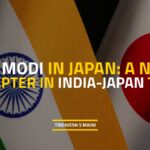









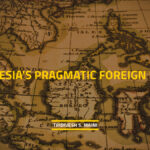






















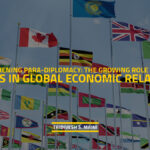


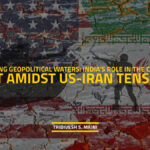








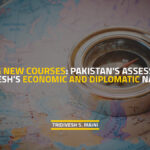
































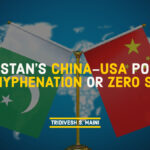






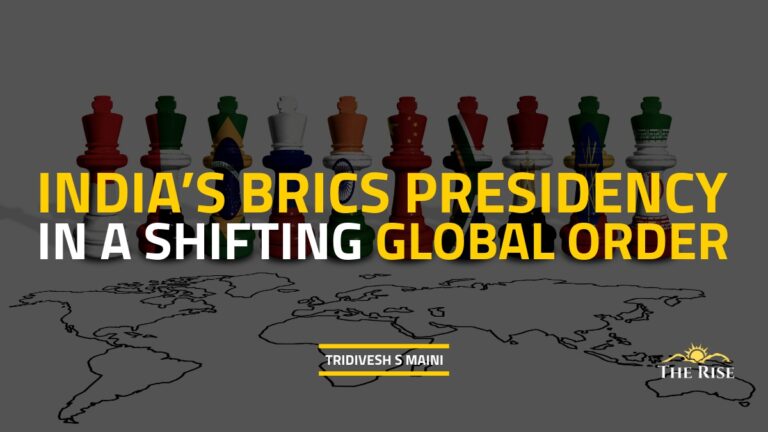



Pingback: Decoding American Foreign Policy - TheRise.co.in